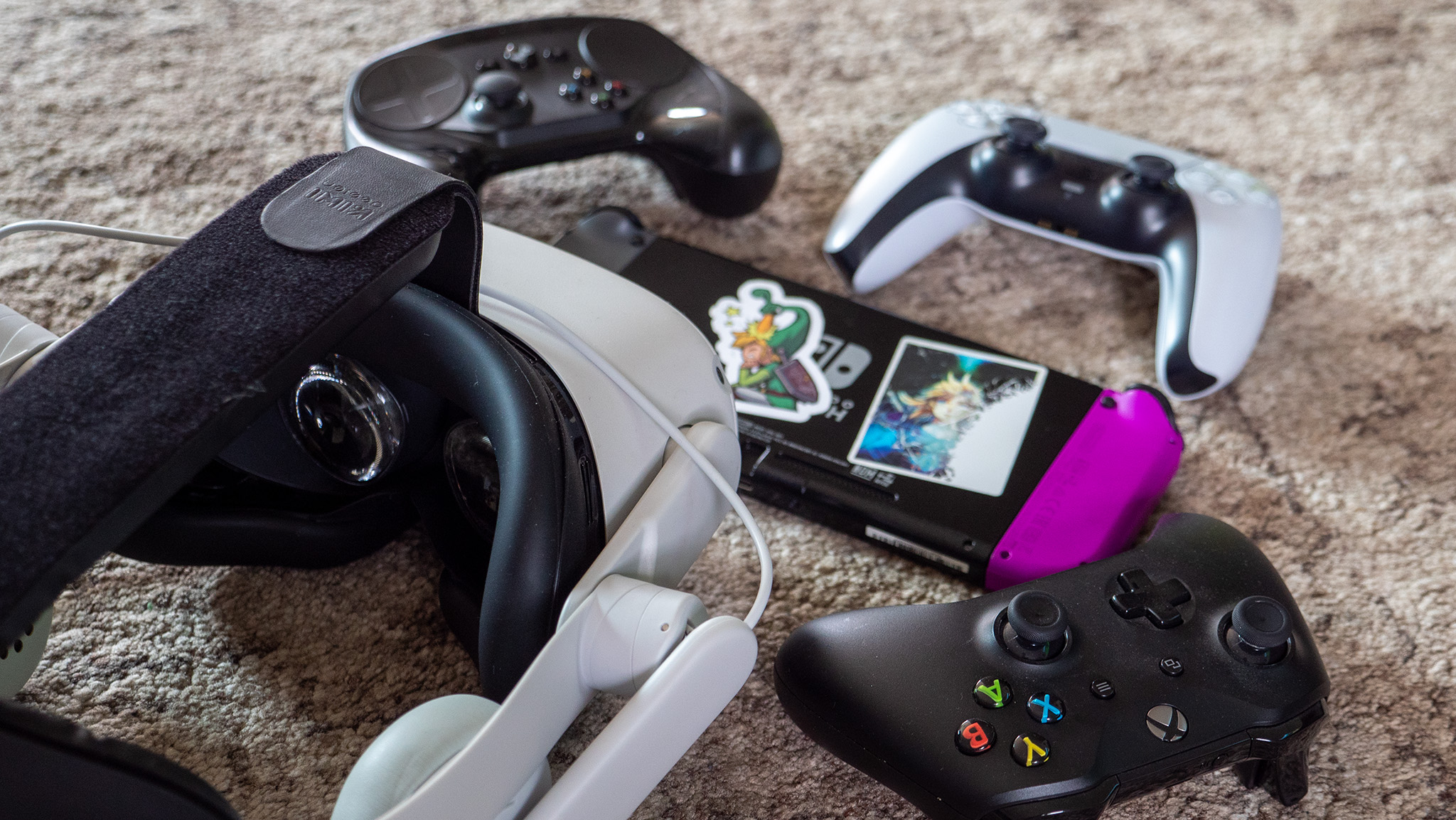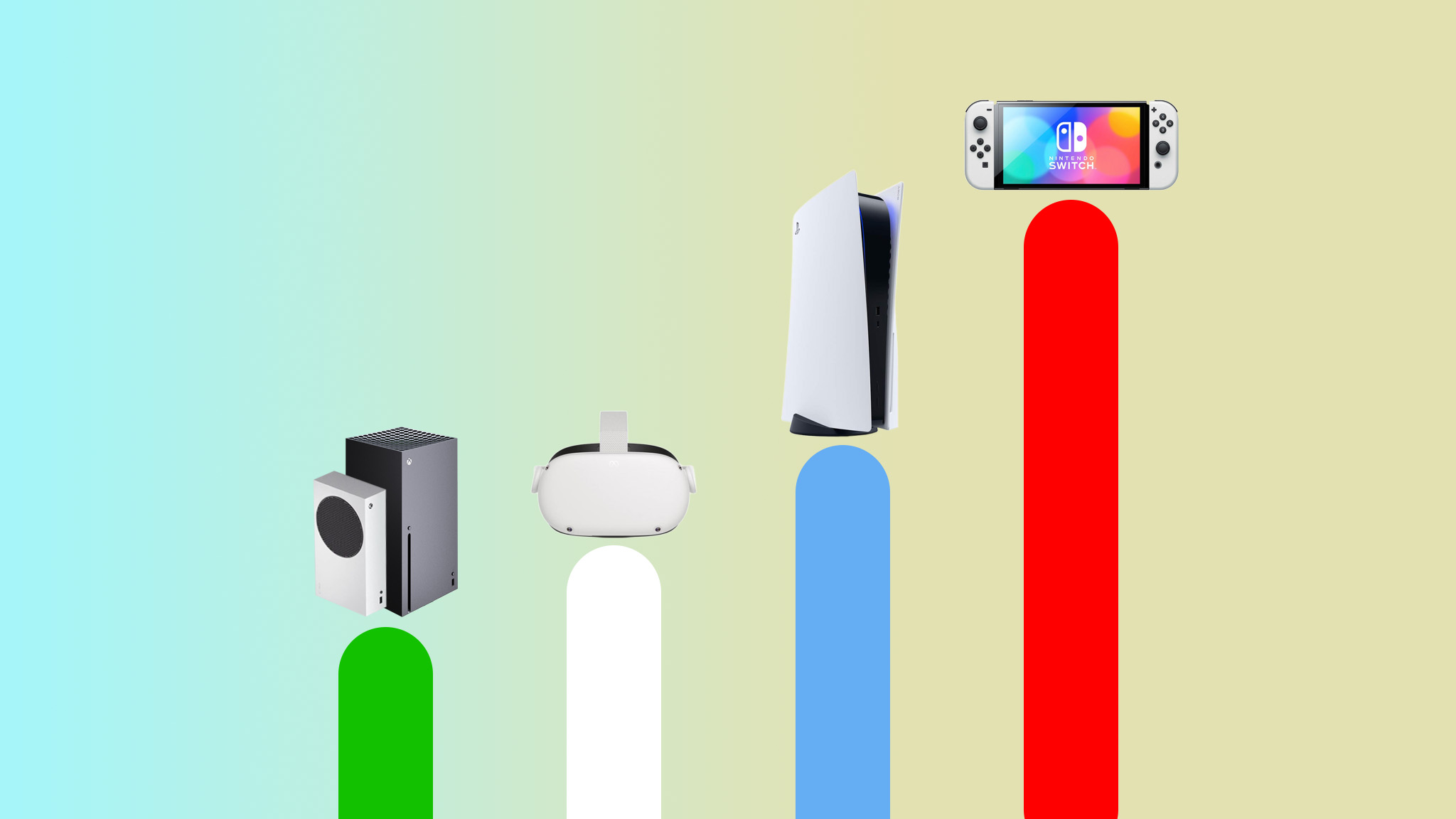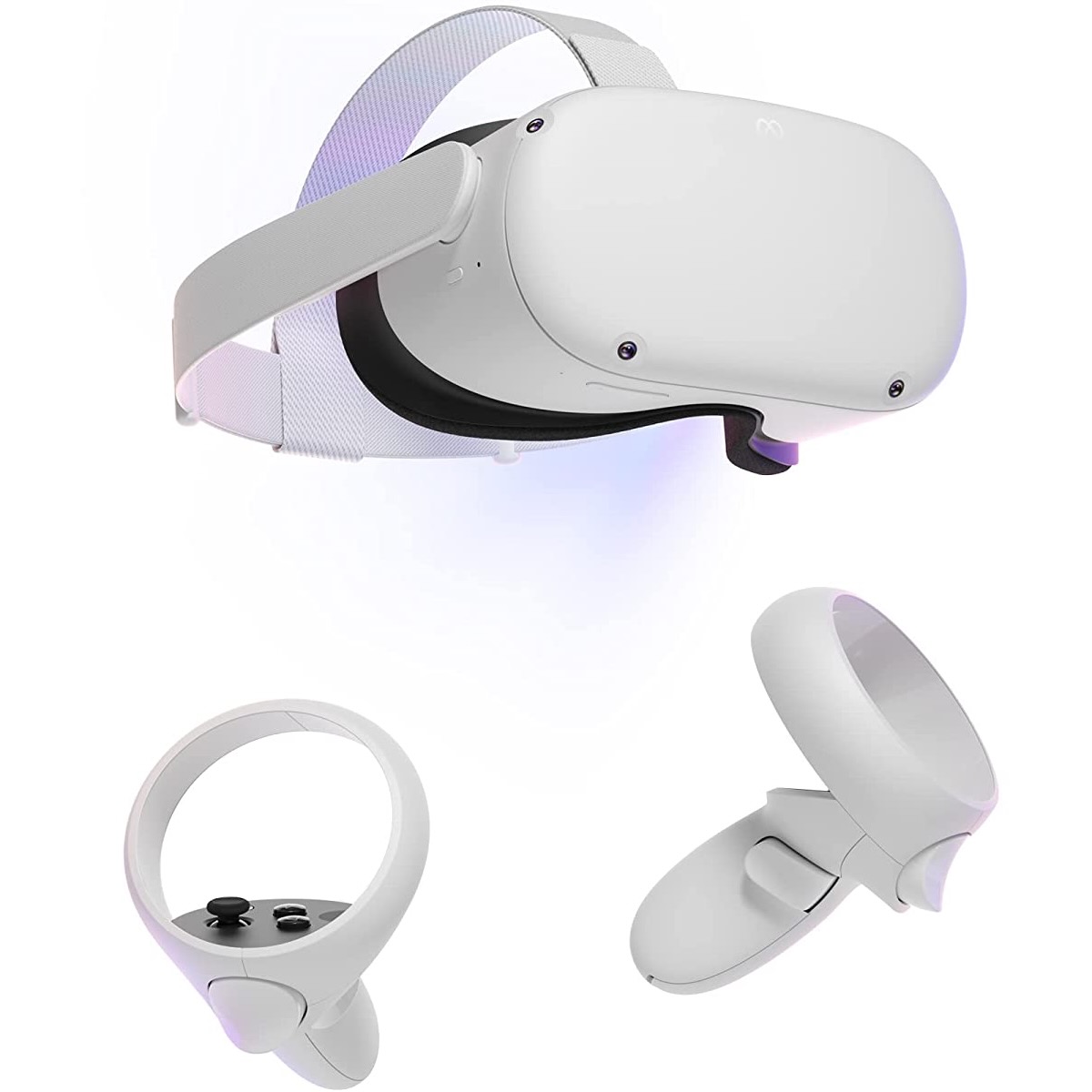VR will never replace traditional gaming, and that's perfectly fine
Gaming is not a zero-sum game.

While some have said over the years that VR will be the next great medium of entertainment — that it will replace all current types of games and ways we watch movies and TV — I think they were dead wrong.
Back in 1980, years before I was born, a song titled "Video killed the radio star" made waves when it launched alongside the new Music Television channel, better known today as MTV. It more than just suggested that music videos would replace audio-only music, ushering in a new visual era of music.
Over the years, music videos and audio-only music live both converged and separated lives with apps like YouTube Music that continually blur the lines between the two seemingly disparate mediums. Spotify's recent TikTok-style redesign further proves that neither video nor radio killed each other. They are stronger in symbiosis.
Likewise, we won't be seeing some future where everyone wears a VR headset all the time and only plays VR games. As gaming has grown, so, too, have the ways people play games. Once upon a time, people only played games on a monitor or TV. These days, anything with a display can play games, and that reality isn't changing any time soon. VR offers a more physical way to interact with your games, but not everyone wants to move that much all the time and that's just fine.
The error of zero-sum thinking

If you're a gamer, chances are you've seen the meme "do you guys not have phones?" It originated from BlizzCon 2018 when the developers of Diablo Immortal were booed upon announcing that Immortal was a mobile-only entry in the series.
As if one wing of the massive Activision Blizzard empire couldn't simultaneously develop both a mobile-only and PC/console-only version of the storied franchise.
The best part is that all of them did have phones and, more than likely — based on the money Activision Blizzard made off the game — all of them played Diablo Immortal. Now, we're treated with Diablo IV, a "proper" entry in the series that fans have already started to enjoy on their PCs and consoles.
Be an expert in 5 minutes
Get the latest news from Android Central, your trusted companion in the world of Android
It's this zero-sum thinking that is killing discourse in the video game industry and, ultimately, causing a lot of strife where none actually exists. In economic terms, a zero-sum game is one in which a win for one side is a direct loss for the other side.
It's a spilling over of political tribalistic behavior that pretends that there are only a finite number of seats of power in the gaming world and that your favorite video game company has to have the most seats to win.
The video game industry is large enough to accommodate different tastes in games without affecting the success of others.
Wake-up call: there is no ceiling here. All of us can play and have fun. The only winners are the gamers — who get to have more fun than ever before — and the developers that get to keep making the games they love because of all the new opportunities.
VR presents a new way to get more physically involved and active by being in the game. Just as handheld gaming machines or smartphones let players take games on the go, VR gives gamers another way to play a game that's different from just sitting on the couch. But it's also OK if you just want to sit on the couch. That's why traditional gaming isn't going anywhere.
So why am I bringing this up now? This week, a new study came out that, as CNBC editorialized, means that teenagers "aren't interested in VR" because only 4% of them play daily.
So I posted about it on Twitter and received a lot of feedback.
With so many ways to play games these days, does *anyone* use any piece of hardware every single day? Yet another dumb, meaningless metric used to smear VR. https://t.co/KocZZJsflVApril 5, 2023
The responses run the gamut from folks who are completely uneducated about the success of the Quest (and the fact that it's been outselling the Xbox Series X|S since both systems' debut) to Xbox fanboys accusing me of somehow being a Sony fanboy because I support VR, and everything in-between.
It's a dizzying thread that ate up the majority of my morning and made me realize just how deep this zero-sum type of thinking runs.
Again, it's as if the demise of VR — whether that's Meta itself or the entire medium — will somehow usher in a new era of dominance for games played on a 2D display.
But that's not how it works.
A history of growth

The graphic above is an old one I made for an article I published a year ago, but it illustrates a good point. Some people will look at this graph and see only the idea that their color is winning.
Good for you, I hope you enjoy the feeling of false success earned by being an armchair quarterback.
For the rest of us, however, the graph above means one thing: gaming continues to grow, and the thing we love to pass our time with is only getting bigger, better, and more varied than ever before.
Gaming continues to grow, becoming bigger, better, and more varied than ever before.
Case in point, let's take a look at the sales of consoles in the early days:

While we could get in the weeds and have several conversations around trends in the chart above, I want to focus on the most important column: the total number of gamers.
As each generation progresses and a new contender enters, one particular company might sell more or less than the other but the number of people buying consoles only grows as competition increases. More choices mean that more niches are being filled and, as a result, more people are willing to spend money on games built by developers who love telling stories and pushing the medium forward as an art.
More choices means more gamers and, thus, more games. Just try to enjoy them instead of fighting about it, ok?
The same goes for VR, mobile gaming, handheld gaming, or whatever niche or segment you want to break the market into. No matter how many people buy one system or regularly play one type of game, the rest of the medium doesn't suffer from it.
Just because there are 6.5 billion smartphones being used in the world doesn't mean that no one plays games on a TV or a computer anymore. Just because the PlayStation sells more than the Xbox doesn't mean you can't still enjoy the next Halo game.
People will play games on the device it makes the most sense for them in the moment. Unique experiences like VR headsets and dedicated gaming phones offer more opportunities, not fewer.
As the old saying goes: "can't we just all get along"?

Forget "the metaverse" and try some great VR games on the Quest 2, the easiest and most affordable way to play the best VR games around.

